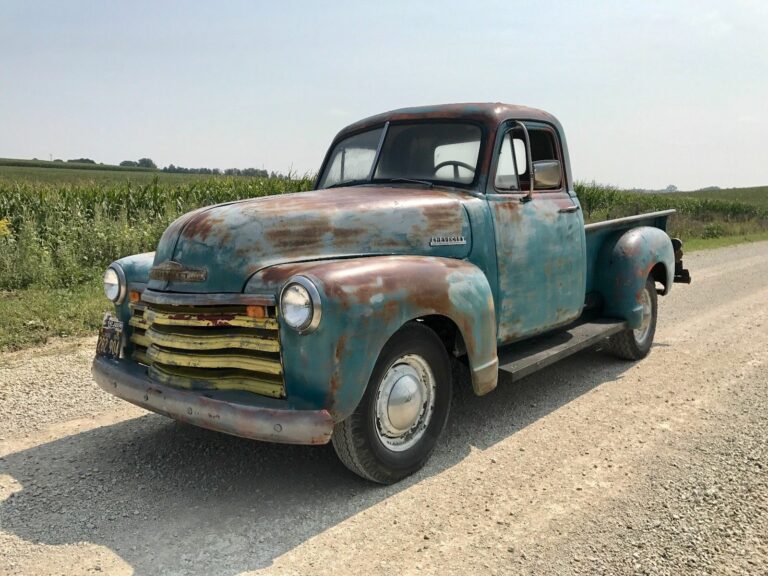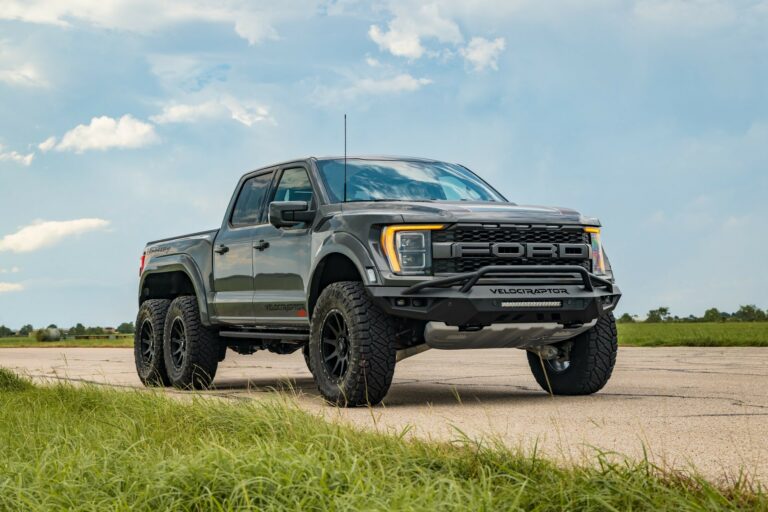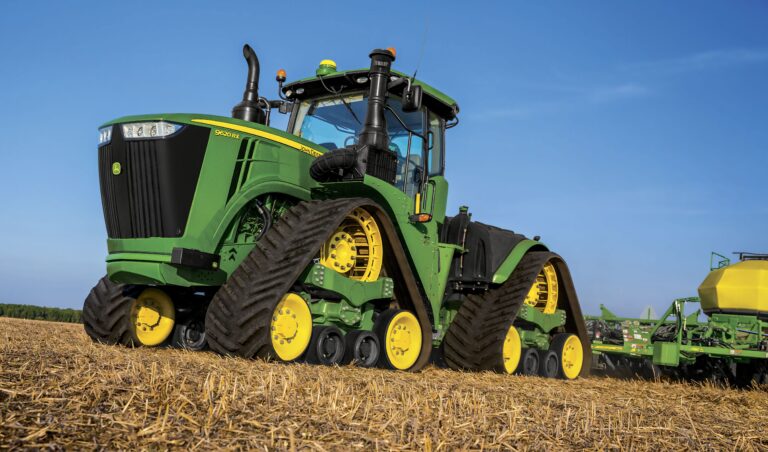Commercial Truck Value: A Comprehensive Guide to Understanding, Maximizing, and Navigating Your Asset’s Worth
Commercial Truck Value: A Comprehensive Guide to Understanding, Maximizing, and Navigating Your Asset’s Worth cars.truckstrend.com
The commercial truck industry is the backbone of global commerce, moving goods across vast distances and connecting supply chains. For businesses and owner-operators alike, a commercial truck is far more than just a vehicle; it’s a significant asset, a revenue-generating machine, and a substantial investment. Understanding its true Commercial Truck Value is paramount. This isn’t merely about the initial purchase price, but encompasses its utility, operational efficiency, longevity, and perhaps most critically, its resale or trade-in potential. Grasping the intricate factors that influence this value allows owners to make informed decisions regarding acquisition, maintenance, upgrades, and eventual disposition, ensuring optimal return on investment and sustainable business operations.
Core Determinants: What Shapes a Truck’s Worth?
Commercial Truck Value: A Comprehensive Guide to Understanding, Maximizing, and Navigating Your Asset’s Worth
The value of a commercial truck is a dynamic figure, influenced by a multitude of internal and external factors. Recognizing these determinants is the first step in accurately assessing and strategically managing your asset.
- Age and Mileage: These are often the most straightforward indicators of depreciation. Generally, the older a truck and the higher its mileage, the lower its value. However, a well-maintained older truck can sometimes hold more value than a neglected newer one. High mileage on a relatively young truck can also signal heavy use and potential accelerated wear.
- Physical and Mechanical Condition: This is arguably the most critical factor. It encompasses the engine, transmission, chassis, tires, brakes, interior, and exterior body. A meticulously maintained engine, a smooth-shifting transmission, and minimal rust or body damage significantly bolster value. Conversely, major mechanical issues or extensive cosmetic damage can drastically reduce it.
- Make, Model, and Reputation: Certain truck manufacturers (e.g., Peterbilt, Kenworth, Freightliner, Volvo, Mack) have established reputations for reliability, durability, and strong resale value. Specific models within these brands also command higher demand due to proven performance, fuel efficiency, or driver comfort.
- Specifications and Configuration: The truck’s specific build matters. This includes engine horsepower, transmission type (manual vs. automatic), axle configuration (e.g., tandem, tridem), sleeper size (day cab vs. full sleeper), and specialized equipment (e.g., wet kits, liftgates, reefer units, dump bodies). Trucks with versatile or in-demand specifications often retain more value.
- Maintenance and Service History: A comprehensive, documented maintenance record is invaluable. It provides irrefutable proof of regular servicing, preventative measures, and timely repairs, instilling confidence in potential buyers or appraisers. Skipping routine maintenance or lacking records can raise red flags and depress value.
- Accident History and Damage: Trucks with a clean title and no major accident history are preferred. Even professionally repaired damage can sometimes be detected and may affect value, especially if it was structural.
- Market Demand and Economic Conditions: External factors play a significant role. High freight volumes, low interest rates, and a strong economy generally lead to increased demand for trucks, pushing values up. Conversely, economic downturns or oversupply in the market can depress prices. Fuel prices and evolving emissions regulations can also influence demand for certain truck types.

Evaluating Value: Methods and Resources
Accurately determining a commercial truck’s value requires a combination of professional insight and diligent research.
- Professional Appraisals: For significant transactions, insurance claims, or financing, a certified commercial truck appraiser can provide an objective, detailed valuation. They consider all aspects of the truck, market conditions, and industry standards.
- Online Valuation Tools and Marketplaces: Websites like TruckPaper.com, CommercialTruckTrader.com, My Little Salesman, and Ritchie Bros. Auctioneers’ past sales results offer vast databases of comparable sales. Browsing listings for similar trucks in your area and comparing features, age, mileage, and condition can provide a strong indication of market value.
- Dealer Valuations: If you’re considering a trade-in, dealerships will offer a valuation. While convenient, be aware that trade-in values are typically lower than retail or private sale values, as the dealer needs to account for reconditioning and profit.
- Comparable Sales Data: The most reliable method for private sellers is to research recent sales of trucks identical or very similar to yours. Look at final sale prices, not just asking prices, to get a realistic sense of what buyers are actually paying.
- Understanding Depreciation Curves: Commercial trucks, like all vehicles, depreciate. They typically lose a significant portion of their value in the first few years (e.g., 20-30% in the first year, then 10-15% annually for the next few years, before leveling off). Understanding these general curves helps in setting realistic expectations for your asset’s worth over time.


Maximizing Value: Strategies for Owners
Proactive management is key to preserving and enhancing your commercial truck’s value throughout its lifecycle.
- Adhere to a Strict Maintenance Schedule: This is non-negotiable. Regular oil changes, filter replacements, fluid checks, tire rotations, and preventative inspections are vital. Addressing minor issues before they escalate into major, costly repairs saves money and preserves mechanical integrity.
- Maintain Detailed Service Records: Keep an organized log of every service, repair, and part replacement, including dates, mileage, and costs. This creates a transparent history that significantly boosts buyer confidence and value. Digital records are increasingly preferred.
- Prioritize Appearance: A clean, well-maintained exterior and interior signal care and attention. Regular washing, waxing, interior detailing, and prompt repair of minor dents, scratches, or tears in upholstery can make a considerable difference in perceived value. First impressions matter.
- Strategic Upgrades and Repairs: While not all upgrades add value, some can be worthwhile. For instance, investing in new, high-quality tires, addressing known common issues for your model, or installing popular aftermarket accessories (e.g., APUs, specialized lighting) that enhance efficiency or comfort can be beneficial. Evaluate the ROI before making major investments.
- Smart Driving Habits: Aggressive driving, excessive idling, and overloading can accelerate wear and tear on the engine, transmission, brakes, and suspension. Training drivers on fuel-efficient and gentle driving practices not only saves on operational costs but also extends the life of components, preserving value.
- Proper Storage and Protection: When not in use, storing trucks in a secure, covered area protects them from harsh weather, sun damage, and potential vandalism, maintaining their cosmetic and structural integrity.
- Timely Disposition: Knowing when to sell or trade your truck is a strategic decision. Selling before major components are due for costly overhauls (e.g., engine rebuild, transmission replacement) can often yield a better return. Monitoring market trends for your specific make/model can also inform the optimal selling window.
Navigating Challenges: Depreciation and Market Swings
Commercial truck ownership comes with inherent challenges that impact value, primarily rapid depreciation and fluctuating market conditions.
- Rapid Depreciation: Trucks lose value quickly, especially in the first few years. This necessitates careful financial planning and understanding that your asset’s book value will decline steadily. Solutions include robust maintenance to slow down mechanical depreciation and strategic upgrades.
- Economic Volatility: Recessions, supply chain disruptions, and changes in fuel prices or freight rates can significantly impact demand and, consequently, truck values. Staying informed about economic indicators and industry forecasts can help in anticipating market shifts.
- Regulatory Changes: Evolving emissions standards (e.g., EPA regulations, California CARB) can make older trucks less desirable or even illegal to operate in certain regions, severely impacting their value. Owners of older fleets should plan for compliance upgrades or timely replacement.
- High Repair Costs: As trucks age, the likelihood and cost of major repairs increase. Owners must balance the cost of repairs against the remaining value of the truck. Sometimes, it’s more financially prudent to replace an aging truck than to continually pour money into expensive fixes.
Table: Key Factors Influencing Commercial Truck Value & Their Impact
| Factor | Description | Typical Impact on Value |
|---|---|---|
| Age & Mileage | Years since manufacture; total distance traveled. | Significant Negative: Primary drivers of depreciation. Higher values for newer trucks with lower mileage. |
| Mechanical Condition | Health of engine, transmission, drivetrain, brakes, etc. | Extremely Significant: Excellent condition commands premium. Major mechanical issues (engine knock, transmission slippage) can reduce value by 30-70% or more, potentially making the truck worth only salvage value. |
| Physical/Cosmetic Condition | Exterior (paint, body, rust), Interior (seats, dash, sleeper). | Significant Positive/Negative: Clean, well-maintained appearance adds appeal and value. Excessive rust, dents, faded paint, or torn interior can deter buyers and reduce value by 10-25%. |
| Maintenance History | Documented records of regular servicing, repairs, and preventative care. | Significant Positive: A comprehensive, verifiable history adds trust and can increase value by 5-15%, demonstrating responsible ownership and reducing buyer risk. Lack of records raises suspicion and lowers value. |
| Make & Model Reputation | Brand perception (reliability, resale demand), specific model performance. | Moderate to Significant Positive: Established brands (e.g., Peterbilt, Kenworth) and popular models generally have stronger resale values due to demand and perceived reliability. |
| Specifications & Features | Engine size, horsepower, transmission type, sleeper, specialized equipment. | Moderate to Significant Positive/Negative: Desirable specs (e.g., powerful engine, efficient automatic transmission, specialized wet kit) can increase value. Niche or highly specialized configurations might have a smaller buyer pool, potentially limiting value unless demand is high for that specific setup. |
| Tire & Brake Life | Remaining tread on tires; wear on brake pads/drums/rotors. | Moderate Positive/Negative: Good tire and brake life reduces immediate post-purchase costs for the buyer, adding value. Worn tires/brakes necessitate immediate replacement and can reduce value by $2,000-$10,000+ depending on the number of axles and quality of tires needed. |
| Market Demand & Economy | Overall freight volumes, fuel prices, interest rates, supply/demand balance. | Variable (External): High demand and strong economy increase values across the board. Recessions or oversupply can significantly depress values (e.g., 10-30% market-wide depreciation in severe downturns) regardless of individual truck condition. |
| Emissions Compliance | Ability to meet current or future environmental regulations (e.g., CARB). | Significant (for older trucks): Non-compliant or older trucks in areas with strict emissions rules can see their value drastically reduced or even become unsellable for commercial operation, potentially reducing value by 20-50% or more, or limiting sales to areas with less stringent regulations. |
| Accident History | Record of major collisions or structural damage. | Extremely Significant Negative: Even well-repaired major accident history (especially involving structural damage or frame) can reduce value by 15-40% due to concerns about long-term integrity and potential hidden issues. Clean titles are highly preferred. |
Frequently Asked Questions (FAQ)
Q1: How often should I get my commercial truck appraised?
A1: For insurance, financing, or major business decisions, an appraisal every 3-5 years, or whenever market conditions significantly change, is advisable. For general understanding, monitoring market trends and comparable sales quarterly can be sufficient.
Q2: Does mileage matter more than age for truck value?
A2: Both are critical, but mechanical condition often trumps both. A low-mileage truck that has been poorly maintained might be worth less than a high-mileage truck with an impeccable service history. However, generally, higher mileage leads to greater wear and tear, and thus lower value, especially past certain thresholds (e.g., 750,000 to 1 million miles for engine overhauls).
Q3: How much does a clean maintenance record add to a truck’s value?
A3: A verifiable, comprehensive maintenance record can add 5% to 15% to a truck’s value. It instills confidence, demonstrates responsible ownership, and indicates that the truck is less likely to have hidden mechanical issues.
Q4: What’s the best way to sell my truck for maximum value?
A4: Generally, selling privately (e.g., via online marketplaces, industry publications) can yield a higher price than trading it in to a dealer or selling at auction. However, private sales require more effort in marketing, showing the truck, and handling paperwork. Ensure the truck is thoroughly cleaned, all maintenance records are organized, and any minor repairs are addressed.
Q5: Do custom modifications add value to a commercial truck?
A5: It depends on the modification. Practical, universally appealing upgrades (e.g., APUs for fuel savings, improved lighting, specific industry-standard add-ons) can add value. Highly personalized or niche modifications might not appeal to a broad market and could even detract from value if they limit the truck’s versatility. Always consider the return on investment.
Conclusion
Understanding Commercial Truck Value is a continuous process of informed decision-making. It extends beyond the initial purchase, encompassing diligent maintenance, strategic upgrades, and an awareness of market dynamics. By proactively managing the factors that influence your truck’s worth, you not only preserve a critical asset but also ensure greater operational efficiency, optimize your financial returns, and contribute to the long-term success of your business. Treat your commercial truck as the valuable investment it is, and its enduring worth will continue to drive your ventures forward.






